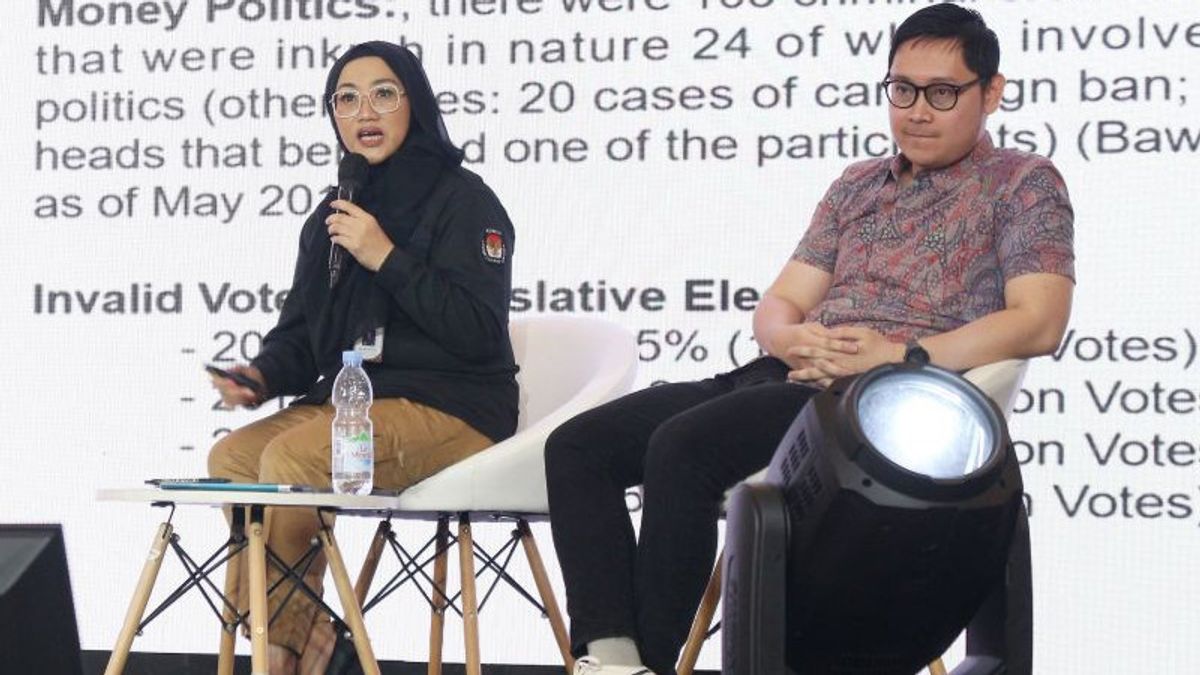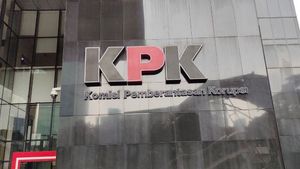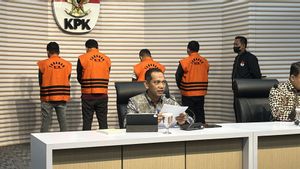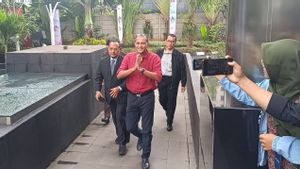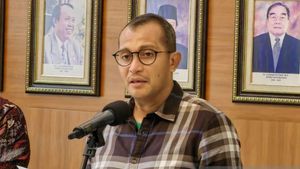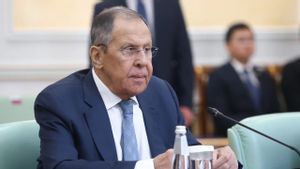JAKARTA - The General Election Commission (KPU) stated, out of a total of 204,807,222 voters in the 2024 election, 60 percent of them are the younger generation represented by generation (Gen) Z, millennial generation, and generation (Gen) X.
Head of Public Relations and Public Information of the Indonesian KPU, Reni Rinjani Pratiwi, said that generation Z or those born in 1997-2009 or aged between 14-26 years at this democratic party had a total of 22.85 percent or 46,800,161 people.
Meanwhile, the millennial generation who were born in 1981-1996 or in the age range of 27-42 years was recorded at 33.60 percent or 68,822,389 people, meanwhile generation X, who was born in 1965-1980 or the age range of 43-58 years, contributed 28.07 percent or equivalent to 57,486,482 people.
Of the total number, he said, as many as 203,056,748 people were domestic voters, while 1,750,474 people were abroad.
"Most of the voters for the 2024 election come from the millennial generation, Gen X, and Gen Z. That's why one of our approaches at the KPU is to educate young voters. We believe their number is at 60 percent, both in Indonesia and abroad," said Reni when giving an explanation at the 2024 Social and Political Science Conference (KISIP) themed Safeguarding Democracy: Multifaceted Response to Election Disinformation, reported from Antara, Wednesday, January 17.
Reni explained that efforts to educate young voters are not only the task of the KPU, but every stakeholder who carries a different role.
"The KPU synergizes with all stakeholders, including formal and non-formal political institutions. We believe that each of these parties has a very large role, thus having an impact on elections," he said.
In addition to conducting education, said Reni, the KPU also continues to strive to ward off political disinformation. In the 2024 election, the KPU has implemented pre-bunking by cooperating with a number of digital platforms based in Indonesia such as Google, YouTube, Meta, TikTok, and X.
"We did a lot of dissemination of information, especially to get the voices of the young people we mentioned earlier, reaching 60 percent of millennials, Gen X, and Gen Z. This generation is very close to social media life," said Reni.
On this occasion, Reni also emphasized that the KPU synergizes with Bawaslu, the Indonesian Broadcasting Commission (KPI), and the Press Council to deal with disinformation problems in the community. According to him, the KPU is well aware that currently there are several hoaxes circulating in cyberspace, especially in the campaign phase.
"I am sure everyone is participating in the debate between the elected presidential and vice-presidential candidates. In the next four days to be precise Saturday, January 21, we will hold a fourth debate for the vice presidential candidate. Then we will also hold the 5th debate in February and I believe the public is waiting for what will happen after the debate," he said.
The presidential and vice presidential debate sessions, according to Reni, have become the main concern of everyone in all countries, but what will happen after the debate is also one of the interesting things.
"The period after the debate was a time when political hoaxes began to spread everywhere. Some say this candidate is like this, the candidate is like that. But we are optimistic and very confident that the public, especially young voters and voters, already have extensive knowledge and really understand that all the right information must come from the right source," said Reni.
SEE ALSO:
The English, Chinese, Japanese, Arabic, and French versions are automatically generated by the AI. So there may still be inaccuracies in translating, please always see Indonesian as our main language. (system supported by DigitalSiber.id)
Most Popular Tags
#Prabowo Subianto #Flood #ramadan #gaza #Tom Lembong #bp danantaraPopular
07 Maret 2025, 00:04
07 Maret 2025, 05:00
07 Maret 2025, 06:00
